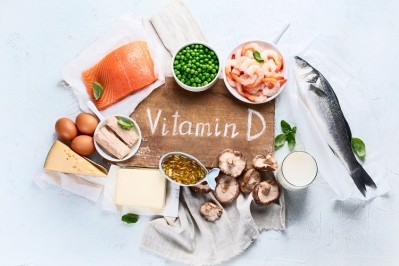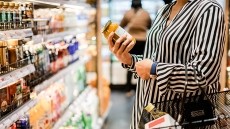Inconsistent labelling regulations hinder vitamin D food fortification innovation, says BNF

A report by the Academy of Medical Scientists, commissioned by the UK government’s chief scientific advisor Sir Patrick Vallance, recommended that people should be encouraged to take vitamin D this winter to protect themselves from a possible second spike in Covid-19.
“It has been suggested that low levels of vitamin D – endemic within the UK, exacerbated by lockdown and which worsen over winter – may contribute to susceptibility to COVID-19,” said the scientist’s report.
Although there is little evidence that vitamin D reduces the risk of SARS-CoV-2 infection, the report said vitamin D “has been associated with a protective effect against acute respiratory tract infections and is known to be important to bone and muscle health”.
It added: “Given the protective effects of vitamin D against respiratory tract infections and wider health benefits, the Government should consider how to encourage the use of vitamin D this winter, particularly in vulnerable and low socio-economic groups.”
The British Nutrition Foundation estimates that around one in five UK adults have low levels of vitamin D, with the problem worse among ethnic minority groups with dark skin. Natural food sources of vitamin D meanwhile are limited to eggs, meat and oily fish (consumption of which is particularly low in the UK).
While it stressed the lack of current evidence to support taking vitamin D to specifically prevent or treat COVID-19, the BNF told FoodNavigator that a fortification strategy to improve dietary intakes, as well as increased communication to highlight natural dietary sources, are “obvious options for improving vitamin D status in the UK”.
It added that low vitamin D status is not a problem peculiar to the UK, with concentrations below recommended levels relatively common in Europe. It suggested that food manufacturers considering fortifying products with vitamin D bear in mind the differing reference intakes between Europe and the UK. While the UK government’s RNI is 10 μg/day, the RI for vitamin D that must currently be used for labelling purposes in Europe is 5 μg/day.
Regulatory inconsistencies risk confusing consumers
In a paper written in May (which can be viewed here) BNF Director General Professor Judy Buttriss highlighted this difference as a potential barrier to voluntary fortification by food manufacturers, which risks compromising clear communication and creates the potential for consumers to feel ‘confused or misled’.
She wrote: “For example, a claim that a product provides 50% of the RI (as required by labelling regulations) might be interpreted to mean a content of 5 μg (half of the amount advocated per day by the UK government) rather than 2.5 μg. Furthermore, the wording used is restricted, and so labelling has to refer to the RI rather to more user-friendly words such as ‘daily needs’.”
She added that the regulatory landscape in Europe is complex for manufacturers, with fortification of foods permitted in some countries (e.g. the UK, Austria, Finland, Sweden) and prohibited in others (such as Norway and Denmark). In yet others, such as Germany, fortification of food categories (e.g. breakfast cereals) is tightly restricted and dependent on the fortificant used and product type (e.g. muesli vs. whole wheat cereals).
Shelf life and bioavailability are other barriers
The BNF highlighted other challenges for food brands potentially eyeing vitamin D opportunities in the COVID-19 era. To ensure consumer acceptability, it said changes to the sensory characteristics (the taste, texture and smell) need to be minimised.
“Processing using heat may affect stability, and different ways of cooking foods (e.g. boiling, frying or baking) may also impact on the final vitamin D content and bioavailability in the prepared food,” the nutrition organisation told us.
Fortification may also be at odds with the growing consumer interest in minimally processed ‘natural’ products, it said. Demand for short ingredient lists comprised of recognisable kitchen ingredients might predicate against fortification in some food formats.
D2 or not D2
In addition, the growing interest in plant‐based eating and flexitarian diets, and the increased availability of vegan‐style foods, means there is rising pressure on manufacturers from a section of the public to fortify foods with vitamin D2 (derived from fungus) rather than D3, which is extracted from sheep’s wool and therefore not acceptable to those following a strict vegan diet.
However, Vitamin D3 appears to be more bioavailable and have better shelf stability and reliability of supply than vitamin D2, said the BNF.


























